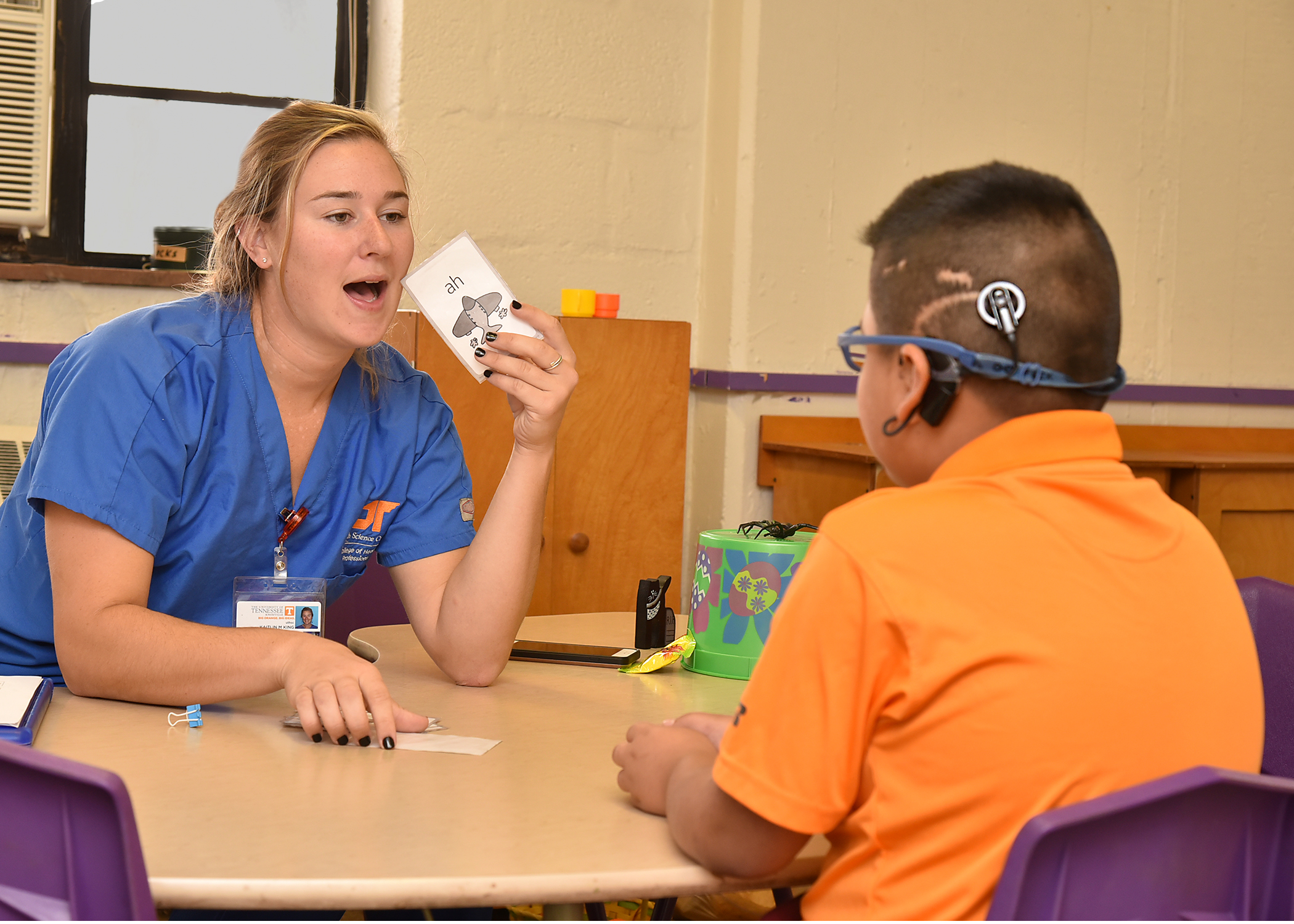Speech Therapy For Deaf Adults
Welcome to the world of speech therapy for deaf adults! In this article, we’ll explore the fascinating field of helping deaf individuals communicate effectively. So, what exactly is speech therapy for deaf adults? It’s a specialized form of therapy that focuses on enhancing speech, language, and communication skills for individuals who experience hearing loss. Let’s delve deeper into this exciting topic!
Imagine a world where communication barriers are overcome and deaf adults can express themselves confidently. That’s the goal of speech therapy for deaf adults. By working with highly trained professionals, individuals can learn techniques to improve their speech, articulation, and overall communication abilities. With the right support, deaf adults can achieve their communication goals and thrive in both personal and professional settings.
Now, you might wonder how speech therapy for deaf adults actually works. It’s not just about learning sign language; it’s about maximizing all available communication methods, including speech. Through a combination of visual cues, auditory techniques, and assistive devices, therapists help deaf adults develop their speech skills. From vocalization exercises to speechreading strategies, each therapeutic approach is tailored to meet the unique needs of the individual.
So, whether you’re someone looking to enhance your speech and communication skills as a deaf adult or simply curious about the world of speech therapy for deaf individuals, this article is for you. Get ready to discover how speech therapy can empower deaf adults to communicate with confidence and make their voices heard. Let’s dive in!

Speech Therapy for Deaf Adults: Improving Communication and Quality of Life
Speech therapy is a vital resource for individuals with hearing impairments, enabling them to overcome communication challenges and enhance their overall quality of life. While many people associate speech therapy with children, it is equally important for deaf adults. In this article, we will explore how speech therapy can benefit deaf adults, the various techniques and strategies used in therapy sessions, and the importance of early intervention. Whether you are a deaf adult seeking speech therapy or someone interested in learning more about this field, this article will provide you with valuable insights.
The Benefits of Speech Therapy for Deaf Adults
Speech therapy offers numerous benefits to deaf adults, empowering them to improve their communication skills and achieve greater independence. One of the primary goals of speech therapy is to enhance speech clarity and intelligibility. Through targeted exercises and techniques, speech therapists help individuals improve their articulation, pronunciation, and overall vocal quality. This, in turn, enables deaf adults to participate more actively in conversations, engage in social interactions, and express their thoughts and ideas more effectively.
Moreover, speech therapy for deaf adults also focuses on improving speech fluency and rhythm. By addressing issues such as stuttering or hesitations in speech, individuals undergoing therapy can develop smoother and more natural speech patterns. This not only boosts their confidence but also makes their communication more effortless and enjoyable for both themselves and those around them.
Another significant benefit of speech therapy is the development of effective listening skills. Through specialized techniques like auditory training and discrimination exercises, deaf adults can better distinguish sounds and recognize speech patterns. With improved auditory processing, individuals become more adept at understanding spoken language, which significantly enhances their ability to communicate verbally.
The Techniques Used in Speech Therapy for Deaf Adults
Speech therapy for deaf adults employs various techniques tailored to meet the unique needs and challenges of each individual. A common approach is the use of visual cues, such as lip-reading or speechreading. By observing the movements of the speaker’s lips, tongue, and facial expressions, individuals can gather visual information that complements their auditory perception.
In addition to visual cues, speech therapy may also involve the use of assistive devices. These devices, such as hearing aids or cochlear implants, amplify and enhance sound to make it more accessible for individuals with hearing loss. By incorporating these devices into therapy sessions, speech therapists can optimize the learning experience and facilitate the development of speech and listening skills.
Furthermore, speech therapy for deaf adults often involves the use of augmentative and alternative communication (AAC) systems. These systems provide alternative methods of expression for individuals who may have limited speech abilities. Examples of AAC include sign language, communication boards, or electronic devices that generate spoken or written output based on the individual’s input. By incorporating these systems into therapy, deaf adults can communicate more effectively and efficiently.
The Importance of Early Intervention in Speech Therapy
Early intervention is crucial when it comes to speech therapy for deaf adults. The earlier an individual begins therapy, the greater the potential for positive outcomes. By addressing speech and communication challenges at an early stage, therapists can provide tailored strategies and techniques that can lead to significant improvements.
Early intervention also promotes better overall language development. It is during the early years that individuals acquire language skills and develop their communication foundations. By enrolling in speech therapy early on, deaf adults can receive targeted guidance to strengthen their language abilities, ensuring a solid base for future growth.
Furthermore, early intervention in speech therapy can help mitigate the potential impact of social and emotional challenges. Communication difficulties can often lead to isolation, frustration, and low self-esteem. By addressing these issues early on, speech therapists can provide ongoing support and guidance, fostering a positive mindset and empowering individuals to face their challenges with confidence.
The Role of Speech-Language Pathologists in Speech Therapy for Deaf Adults
Speech-language pathologists (SLPs) play a vital role in providing speech therapy services to deaf adults. These professionals possess specialized training and expertise in the assessment and treatment of communication disorders. SLPs collaborate with their clients to develop personalized therapy plans that address their unique needs and goals.
Assessment and Diagnosis
When working with deaf adults, speech-language pathologists first conduct a comprehensive assessment to evaluate their speech, language, and communication abilities. This assessment may involve various tests, observations, and interviews to gather a complete picture of the individual’s strengths and challenges. Based on the assessment results, the SLP can then make an accurate diagnosis and determine the most appropriate treatment approach.
Treatment Planning and Goals
Once a diagnosis is established, the speech-language pathologist collaborates with the client to develop a treatment plan. This plan outlines the specific goals and objectives of therapy, as well as the strategies and techniques that will be utilized. Treatment plans are highly individualized, taking into account the unique needs, preferences, and circumstances of each individual.
Therapy Implementation and Progress Monitoring
During therapy sessions, the speech-language pathologist works closely with the client, providing hands-on guidance, feedback, and support. Therapy sessions may include a combination of activities such as practicing articulation, engaging in conversation exercises, working on fluency techniques, or incorporating assistive devices and communication systems. The SLP regularly monitors the individual’s progress, adjusting the therapy plan as needed to ensure optimal results.
Fostering Communication Success: Strategies and Tips for Deaf Adults
While speech therapy is a valuable tool for deaf adults, there are also strategies and tips that individuals can implement in their daily lives to enhance their communication skills and facilitate meaningful interactions. Here are some helpful suggestions:
1. Practice Active Listening
Active listening involves giving your full attention to the speaker, focusing on their words and non-verbal cues. By actively engaging in the conversation, you can better understand the message and respond appropriately.
2. Seek Out Supportive Social Environments
Social environments that are inclusive and understanding can greatly contribute to positive communication experiences. Surround yourself with individuals who are patient, willing to clarify and repeat information, and supportive of your unique communication needs.
3. Utilize Assistive Technology
Take advantage of assistive devices and technologies that can enhance your communication abilities. This may include using captioning apps, video relay services, or communication apps that facilitate real-time conversation and translation.
4. Engage in Speech Exercises
Strengthen your speech and articulation skills by practicing specific exercises recommended by your speech-language pathologist. These exercises can help improve pronunciation, clarity, and fluency.
5. Advocate for Yourself
Be proactive in advocating for your communication needs and preferences. Whether it’s requesting accommodations or educating others about your unique communication style, assertively expressing your needs can greatly enhance your communication experiences.
6. Join Support Groups
Connecting with other deaf adults who are navigating similar communication challenges can provide valuable support and resources. Consider joining local or online support groups to share experiences, learn from others, and build a supportive network.
7. Celebrate Progress
Recognize and celebrate the progress you make along your communication journey. Patience and perseverance are key, and every small step forward is worth acknowledging. Embrace your unique communication style and continue to embrace growth.
Exploring Innovations in Speech Therapy for Deaf Adults
Advancements in technology and research continue to shape the field of speech therapy for deaf adults, offering new possibilities and improving outcomes. Here are three innovative approaches that are making a difference:
1. Telepractice
Telepractice, also known as teletherapy or telehealth, allows individuals to receive speech therapy services remotely through a secure online platform. This approach offers convenience, access to specialized therapists, and the ability to engage in therapy from the comfort of one’s own home.
2. Virtual Reality
Virtual reality technology is being increasingly utilized in speech therapy to create immersive and interactive environments. Deaf adults can engage in simulated conversations, practice real-life scenarios, and receive instant feedback, enhancing the learning experience.
3. Speech-to-Text Technologies
Speech-to-text technologies, such as automatic transcription tools, can transcribe spoken language into written text in real-time. These tools can be particularly helpful for deaf adults, allowing them to seamlessly participate in conversations and easily access information.
In conclusion, speech therapy plays a pivotal role in empowering deaf adults to enhance their communication skills and improve their quality of life. Through targeted techniques, personalized treatment plans, and ongoing support, individuals can develop better speech clarity, fluency, and listening skills. Early intervention is crucial to maximizing the benefits of speech therapy, and through the collaboration with speech-language pathologists and the implementation of various strategies and tips, deaf adults can foster successful communication experiences. With innovative approaches and technologies continually emerging in the field, the future of speech therapy for deaf adults holds great promise in improving access and outcomes.
Key Takeaways
- Speech therapy for deaf adults helps improve communication skills.
- It includes techniques like lip reading and visual cues.
- Common goals of speech therapy include enhancing speech clarity and articulation.
- Speech therapists may use technology like hearing aids and cochlear implants.
- Social support and counseling are important aspects of speech therapy for deaf adults.
Frequently Asked Questions
For individuals who are deaf, speech therapy can play a crucial role in improving communication skills. Here are some commonly asked questions about speech therapy for deaf adults:
1. How can speech therapy benefit deaf adults?
Speech therapy can benefit deaf adults in several ways. It focuses on improving speech clarity, enhancing vocal pitch and volume control, and refining overall communication skills. Through specialized techniques and exercises, deaf adults can develop clearer speech patterns, leading to better understanding and engagement with others. Speech therapy can also help deaf individuals integrate spoken language with other forms of communication, such as sign language or lip-reading.
In addition, speech therapy can increase self-confidence and decrease communication barriers, helping deaf adults participate more effectively in social and professional settings. With the guidance of a speech therapist, individuals can develop strategies to navigate everyday situations and overcome speech challenges.
2. Is speech therapy effective for all deaf adults?
Speech therapy can be effective for most deaf adults, but the outcomes may vary depending on the individual’s specific needs and circumstances. Some individuals may have a residual hearing ability that allows them to acquire speech skills more easily, while others may rely more on visual or tactile communication methods.
It’s important to remember that the goal of speech therapy is not to make all deaf adults sound “hearing,” but rather to enhance their speech intelligibility and overall communication skills. Every individual has unique strengths and challenges, and speech therapy can be tailored to meet their specific needs and goals.
3. How long does speech therapy for deaf adults typically last?
The duration of speech therapy for deaf adults can vary depending on various factors, including the individual’s speech goals, the severity of their communication challenges, and their consistency in attending therapy sessions.
In some cases, speech therapy may be a short-term intervention, focusing on specific goals such as improving pronunciation or clarity, and lasting for a few months. In other instances, especially for individuals with more complex speech challenges, speech therapy may be a longer-term process extending over a year or more. Regular practice and dedication outside of therapy sessions are crucial for optimal progress.
4. Can speech therapy help deaf adults who use sign language?
Absolutely! Speech therapy can benefit deaf adults who use sign language as their primary mode of communication. Speech therapy can focus on developing speech clarity and integrating spoken language with sign language, bridging the gap between the two forms of communication.
Therapists may use techniques such as visual feedback, tactile feedback, and kinesthetic cues to facilitate speech production and improve speech intelligibility for sign language users. The goal is to enhance overall communication skills while respecting and incorporating the individual’s preferred mode of communication.
5. How can deaf adults continue practicing speech therapy outside of sessions?
Continuing practice outside of therapy sessions is crucial for reinforcing the progress made during speech therapy. Here are a few ways that deaf adults can continue practicing:
– Utilize speech therapy exercises and techniques taught by the therapist, incorporating them into daily communication routines.
– Engage in conversations with supportive family members, friends, or conversation partners who can provide feedback and practice opportunities.
– Explore online resources, such as speech therapy apps, videos, and exercises designed specifically for deaf adults.
Remember, progress takes time and patience. Consistent practice and a positive attitude can go a long way in improving speech skills and overall communication abilities.
Summary:
Deaf adults can benefit from speech therapy to improve their communication skills. Speech therapy can help them develop speech sounds and enhance their overall ability to communicate effectively.
Therapy techniques such as lip reading, visual cues, and speech exercises are used to help deaf adults improve their articulation and pronunciation. Speech therapists provide personalized support to meet the unique needs of each individual, empowering them to express themselves confidently and navigate social interactions more comfortably.
With the help of speech therapy, deaf adults can gain more independence and strengthen their connections with others through improved communication skills.



